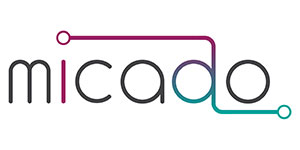Please wait while flipbook is loading. For more related info, FAQs and issues please refer to DearFlip WordPress Flipbook Plugin Help documentation.
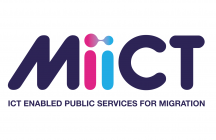
MIICT (ICT Enabled Services for Migration) was conceived with the goal of designing, developing and deploying tools that address the challenge of migrant integration. In service of this goal, the project undertakes to co-create improved ICT-enabled services with migrants, refugees, public sector services, NGOs (Non-Governmental-Organisations) and other interest groups.
By involving research-users at the centre of our approach we address the need to improve and customise the interfaces used to access key public services so that they better address the requirements of migrants and refugees. To achieve this MIICT has undertaken the development of a system to capture the specific socio-cultural, economic and legal contexts of migrants; information that can be shared with public authorities.
MIICT will address the following specific objectives:
-
- Co-design ICTs to assist in the integration of refugee and migrant populations through the provision of customised access to key public services
- Develop an adaptive ‘plug-and-play’ integration framework for the incorporation of new ICTs into existing public service infrastructure
- Prove migrant integration management by providing a job and skills matching decision support tool
- Deepen societal understanding of the factors that impact upon refugee and migrant populations’ ability to access key public services
- Introduce a repeatable and proven open consolidated methodology for co-designing ICTs for public sector service transformation
- Integrate, demonstrate and rigorously test a number of co-designed ICTs that streamline access to public services and ease the integration of refugee communities
More details can be found on www.miict.eu
Project Partner


easyRights aims to make it easier for immigrants to understand and access the services they are entitled to, helping them to more rapidly integrate into their host society and feel like valued members.
Bringing together immigrants, public administrations, and private organisations, easyRights will co-design a platform that mediates between migrants and public administrations to help those newly arrived to more easily exercise their rights whilst improving their language skills. By leveraging new technologies, including Artificial Intelligence (AI) and Natural Language Processing (NLP), the easyRights platform will simplify complex administrative services to provide personalised, context aware, easy-to-understand information, appropriate for each migrant need, background, and native language.
The consortium is led by Politecnico di Milan, and involves research institutions, public authorities, NGO’s and SMEs from Austria, Denmark, Greece, Italy, Norway, Spain, and the United Kingdom. EasyRights will pilot the solution focusing on differing immigrant needs in the cities of Birmingham, UK, Larissa, Greece, Malaga, Spain, and Palermo in Italy. By the end of the project the easyRights solution will be available to all cities across Europe and beyond.
Discover more about easyRights here.

The reception and integration of migrants and refugees remains a fundamental societal challenge for many European countries. Tackling this challenge requires a committed effort in order to ensure the provision of personalized communication, education (including language learning), cultural and social immersion. Recent advances in Information and Communication Technologies (ICT) can be instrumental for the success of this effort.
The overall objective of WELCOME is to facilitate the reception and integration of migrants and refugees through comforting, easy to comprehend, personalized technology solutions.
WELCOME will research and develop intelligent technologies for support of the reception and integration of migrants in Europe. It will offer a personalized and psychologically and socially competent solution for both migrants and public administrations. The solution for migrants will consist of immersive environments and teams of intelligent conversational agents, which will act as dedicated personal assistants. The solution for public administrations will provide situation-aware decision support and thus facilitate more efficient migrant reception and integration.
More details on the project activities can be found on www.welcome-h2020.eu
Project Partner

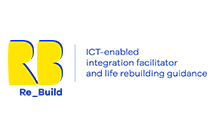
REBUILD main objective is to improve migrants and refugees integration processes in Europe through the development of ICT-based solutions, aiming at enhancing the efficiency level in local authorities’ service provision and the immigrants’ quality of life. Actually, the starting point is the awareness about the gap between the supply of public services and the actual possibility of accessing them for immigrants and refugees.
This objective will be achieved through the realization of an application that may be used by immigrants and refugees to assure a better interaction among them and with public administrations and a more effective matching between the immigrants’ needs and the supply of services in the hosting countries, such as by way of example access education, residence permit, welfare services, access to procedures for the recognition of professional skills or services for unaccompanied minors.
This new technological solution is based on:
-
- GDPR-compliant migrants’ integration related background information gathering with user consent and anonymization of personal information.
- AI-based profile analysis to empower both personalized support and policy making on migration-related issues
- AI-based needs matching tool to match migrant needs with services provided at local level in Member States, and identify possible interaction paths (e.g.: skills matching with labor market needs and provision of high impact training for minding emerging gaps).
- A digital companion for migrants enabling personalized two-way communication using chatbots to provide them information about available public services, smart support to effectively access and interact to those services and with the local context in general, and collecting feedbacks valuable both for local authorities and services providers and for continuously improving usability and accessibility of the tool.
Project Partner

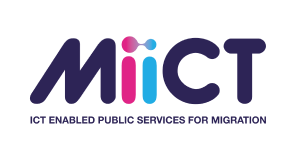
MIICT (ICT Enabled Services for Migration) was conceived with the goal of designing, developing and deploying tools that address the challenge of migrant integration. In service of this goal, the project undertakes to co-create improved ICT-enabled services with migrants, refugees, public sector services, NGOs (Non-Governmental-Organisations) and other interest groups.
By involving research-users at the centre of our approach we address the need to improve and customise the interfaces used to access key public services so that they better address the requirements of migrants and refugees. To achieve this MIICT has undertaken the development of a system to capture the specific socio-cultural, economic and legal contexts of migrants; information that can be shared with public authorities.
MIICT will address the following specific objectives:
-
- Co-design ICTs to assist in the integration of refugee and migrant populations through the provision of customised access to key public service
- Develop an adaptive ‘plug-and-play’ integration framework for the incorporation of new ICTs into existing public service infrastructure
- Prove migrant integration management by providing a job and skills matching decision support tool
- Deepen societal understanding of the factors that impact upon refugee and migrant populations’ ability to access key public services
- Introduce a repeatable and proven open consolidated methodology for co-designing ICTs for public sector service transformation
- Integrate, demonstrate and rigorously test a number of co-designed ICTs that streamline access to public services and ease the integration of refugee communities
More details can be found on www.miict.eu
MIICT Project Partners:

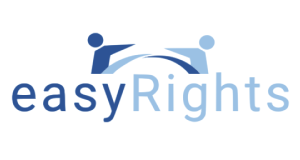
easyRights aims to make it easier for immigrants to understand and access the services they are entitled to, helping them to more rapidly integrate into their host society and feel like valued members.
Bringing together immigrants, public administrations, and private organisations, easyRights will co-design a platform that mediates between migrants and public administrations to help those newly arrived to more easily exercise their rights whilst improving their language skills. By leveraging new technologies, including Artificial Intelligence (AI) and Natural Language Processing (NLP), the easyRights platform will simplify complex administrative services to provide personalised, context aware, easy-to-understand information, appropriate for each migrant need, background, and native language.
The consortium is led by Politecnico di Milan, and involves research institutions, public authorities, NGO’s and SMEs from Austria, Denmark, Greece, Italy, Norway, Spain, and the United Kingdom. EasyRights will pilot the solution focusing on differing immigrant needs in the cities of Birmingham, UK, Larissa, Greece, Malaga, Spain, and Palermo in Italy. By the end of the project the easyRights solution will be available to all cities across Europe and beyond.
Discover more about easyRights here.
easyRights Project Partners:


The reception and integration of migrants and refugees remains a fundamental societal challenge for many European countries. Tackling this challenge requires a committed effort in order to ensure the provision of personalized communication, education (including language learning), cultural and social immersion. Recent advances in Information and Communication Technologies (ICT) can be instrumental for the success of this effort.
The overall objective of WELCOME is to facilitate the reception and integration of migrants and refugees through comforting, easy to comprehend, personalized technology solutions.
WELCOME will research and develop intelligent technologies for support of the reception and integration of migrants in Europe. It will offer a personalized and psychologically and socially competent solution for both migrants and public administrations. The solution for migrants will consist of immersive environments and teams of intelligent conversational agents, which will act as dedicated personal assistants. The solution for public administrations will provide situation-aware decision support and thus facilitate more efficient migrant reception and integration.
More details on the project activities can be found on www.welcome-h2020.eu
WELCOME Project Partners:

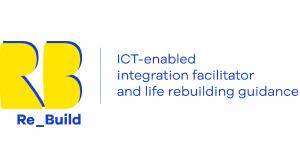
REBUILD main objective is to improve migrants and refugees integration processes in Europe through the development of ICT-based solutions, aiming at enhancing the efficiency level in local authorities’ service provision and the immigrants’ quality of life. Actually, the starting point is the awareness about the gap between the supply of public services and the actual possibility of accessing them for immigrants and refugees.
This objective will be achieved through the realization of an application that may be used by immigrants and refugees to assure a better interaction among them and with public administrations and a more effective matching between the immigrants’ needs and the supply of services in the hosting countries, such as by way of example access education, residence permit, welfare services, access to procedures for the recognition of professional skills or services for unaccompanied minors.
This new technological solution is based on:
-
- GDPR-compliant migrants’ integration related background information gathering with user consent and anonymization of personal information.
- AI-based profile analysis to empower both personalized support and policy making on migration-related issues
- AI-based needs matching tool to match migrant needs with services provided at local level in Member States, and identify possible interaction paths (e.g.: skills matching with labor market needs and provision of high impact training for minding emerging gaps).
- A digital companion for migrants enabling personalized two-way communication using chatbots to provide them information about available public services, smart support to effectively access and interact to those services and with the local context in general, and collecting feedbacks valuable both for local authorities and services providers and for continuously improving usability and accessibility of the tool.
Re-Build Project Partners:

NADINE Project Partners:

